History
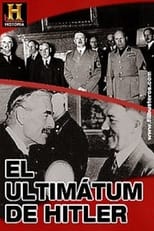
Hitlers Ultimatum
July 14, 2008

Red Cliff
July 10, 2008
In 208 A.D., in the final days of the Han Dynasty, shrewd Prime Minster Cao convinced the fickle Emperor Han the only way to unite all of China was to declare war on the kingdoms of Xu in the west and East Wu in the south. Thus began a military campaign of unprecedented scale. Left with no other hope for survival, the kingdoms of Xu and East Wu formed an unlikely alliance.
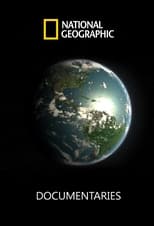
Titanic's Nuclear Secret
July 7, 2008
The nuclear trail to Titanic and the intact treasures of the Black Sea. It was the greatest nautical mystery of the 20th Century: the final resting place of Titanic.
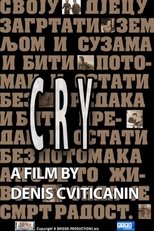
Cry
July 4, 2008
In 1998, the corpses of murdered Serbs were exhumed from a mass grave near the Orthodox church, transported and buried at the city cemetery in Trebinje. The documentary tells about the tragic fate of the Živak family.
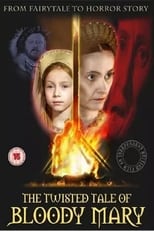
The Twisted Tale Of Bloody Mary
July 3, 2008
She was loved, she was a princess, heir to the throne - but the childhood fairytale turned to lifelong nightmare for Mary Tudor, Henry VIII's first child. When Henry divorced her mother and married Anne Boleyn, Mary became an outcast and a threat to the Protestant succession. By a twist of fate, on the death of her brother, she became queen at last in 1553, but her attempts to make England Catholic again were a disaster for her and the country. History has called her "Bloody Mary" for the burning of the Protestants, but how fair is this? This film paints another picture, of a woman true to her beliefs, pushed towards a terrible psychological disintegration.

Big Bang in Tunguska
June 27, 2008
At 7:14 am on 30 June 1908, the largest explosion recorded in human history to date reverberated throughout our planet. The force of the explosion was two thousand times that of the Hiroshima bomb. A woodland area the size of Luxembourg was eradicated in the Siberian taiga. This incident is recorded in history books as the Tunguska catastrophe. To this day, internationally renowned scientists of various disciplines argue about the causes of this disastrous explosion. The documentary discusses the latest and most controversial insights of these leading scientists. It identifies the reasons why Tunguska has evolved into a phenomenon and points out the curious results produced by this mythical event in culture and economy.

President Gordon B. Hinckley: Honoring the Life and Legacy of a Prophet
June 26, 2008
In this final tribute to President Gordon B. Hinckley, experience personal accounts of faith-defining moments that shaped his life and warm memories shared by family, friends and colleagues who knew him best. Gordon B. Hinckley was born in Salt Lake City on June 23, 1910. Following his mission to Great Britain, he was employed as the executive secretary of the LDS Church Radio, Publicity, and Literature committee before being called as an Apostle in 1961. He was later called to serve as a counselor to President Kimball, Presidents Benson and President Hunter. After becoming LDS Church President in March of 1995, he directed the most intense temple building program in the history of the Church all while improving the Church's public image through television interviews and increased openness with the media. This special collection of poignant interviews and historic footage follows President Hinckley around the globe and captures his charm and wisdom like never before.

The Anarchist's Wife
June 26, 2008
"The Anarchist's Wife" is the story of Manuela who is left behind when her husband Justo fights for his ideals against Franco's Nationalists during the Spanish Civil War. He is deported to a concentration camp, and upon his release, continues the fight against nationalism in the French resistance. Years, pass without a word from him, but his wife never gives up hope of seeing him again.
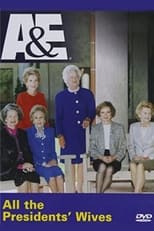
All the Presidents' Wives
June 24, 2008
A look at the women who has served as First Ladies of the United States.
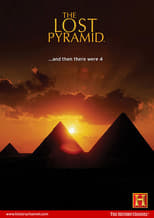
The Lost Pyramid
June 23, 2008
A study of the ruined Egyptian pyramid of the 4th dynasty pharaoh Djedefre, including evidence from a ten-year excavation which supports new theories about his reign and the pyramid's importance.

The Bridge
June 20, 2008
A group of German boys is ordered to protect a small bridge in their home village during the waning months of the second world war. Truckloads of defeated, cynical Wehrmacht soldiers flee the approaching American troops, but the boys, full of enthusiasm for the "blood and honor" Nazi ideology, stay to defend the useless bridge.
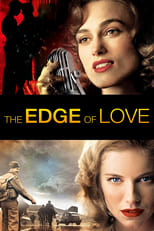
The Edge of Love
June 20, 2008
When the Welsh poet Dylan Thomas and his flirtatious wife Caitlin sweep into war-torn London, the last thing they expect is to bump into Dylan's childhood sweetheart Vera. Despite her joy at seeing Dylan after so many years, Vera is swept off her feet by a dashing officer, William Killick, and finds herself torn between the open adoration of her new found beau and the wily charms of the exotic Welshman.
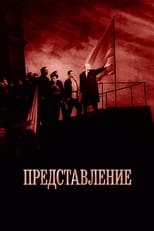
Revue
June 15, 2008
As he did with his critically-acclaimed "Blockade," a documentary re-creation of the WWII siege of Leningrad, which received its NY theatrical premiere in March 2007, filmmaker Sergei Loznitsa has once again scoured the Russian film archives for "Revue," selecting excerpts from newsreels, propaganda films, TV shows and feature films that present an evocative portrait of Soviet life during the 1950s and 1960s. With scenes taken from the length and breadth of the “Soviet Motherland,” "Revue" illustrates industry and agriculture, political life, popular culture, and technology. The film’s fascinating flow of disparate scenes representing typical Soviet life of the period is, seen from today’s perspective, alternately poignant, funny, and tragic
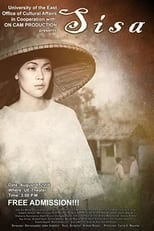
Sisa
June 12, 2008
Narcisa "Sisa" Dalangin is a young Filipina during the Spanish Occupation & is a childhood friend of Jose Rizal.
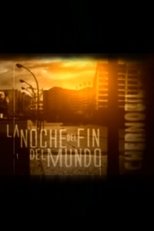
La noche del fin del mundo
June 11, 2008
A retrospective analysis of the causes and consequences of the catastrophic accident at the Chernobyl nuclear power plant in Ukraine on April 26, 1986.

La 2CV : auto portrait
June 10, 2008
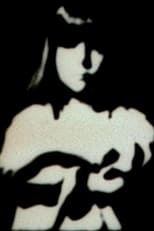
J.
June 10, 2008
Found memories decayed by the shock patterns of childhood trauma. This films is made mostly with footage found in the bin of an ophanage. The white progressivelly disolve within a darknest more and more dense. Faces progressivelly disolves within one another.

Victorian Sex Explorer
June 9, 2008
Part history, part travelogue, Victorian Sex Explorer is a revealing, witty journey through Queen Victoria’s Empire, from the late 1830s to the turn of the century. Fuelled by the same desire as the infamous Victorian explorer and sexual anthropologist Sir Richard Burton,Rupert Everett (My Best Friend’s Wedding; St Trinian’s) re-traces his steps in the modern day Orient to explore changing attitudes to sex, the legacy of the Empire and erotica in all its guises.
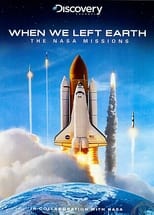
When We Left Earth
June 8, 2008
Commemorating the space agency's 50th anniversary, follow John Glenn's Mercury mission to orbit the earth, Neil Armstrong's first historic steps on the moon, unprecedented spacewalks to repair the Hubble stories, and more!
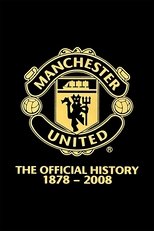
Manchester United: The Official History 1878-2008
June 7, 2008
One hundred and thirty years since the club’s formation, Manchester United continue to dominate the game of football both at home and abroad. From humble beginnings, when the workers of the Newton Heath Lancashire and Yorkshire Railway first came together to play the emerging sport of football, Manchester United has acquired a special place in the hearts of supporters everywhere to become the most famous club in the world. Built on the raw talent and fighting spirit of the 'Busby Babes', who thrilled crowds all over Europe before tragedy struck in Munich, their spirit and style is still evident today, encouraged by Sir Alex Ferguson and epitomized by the modern-day superstars - Wayne Rooney and Cristiano Ronaldo.